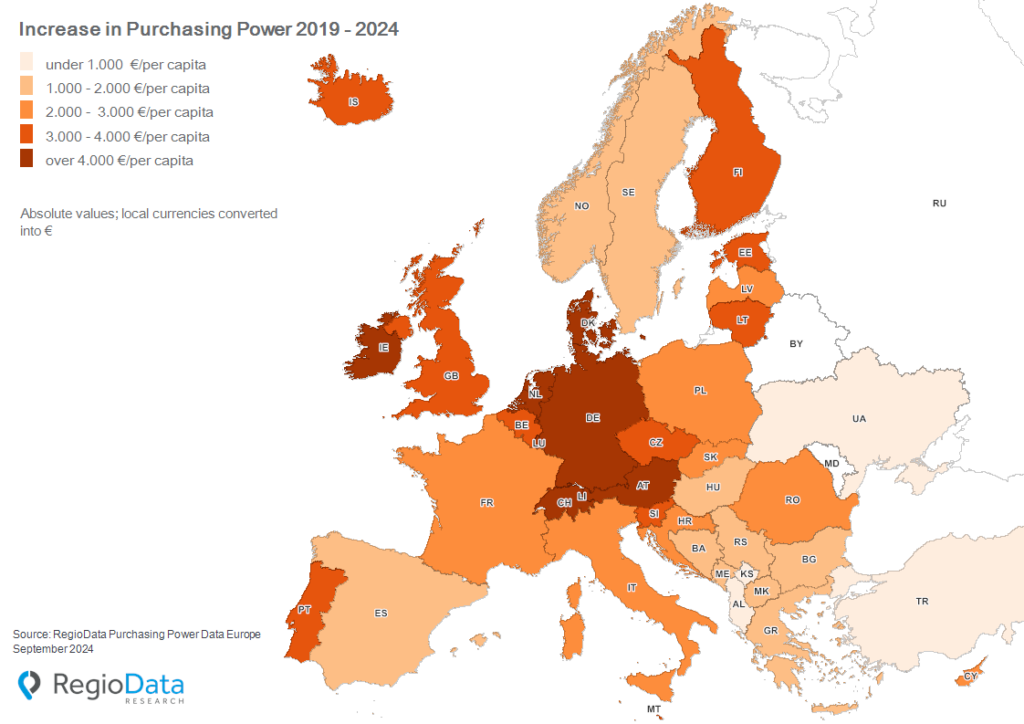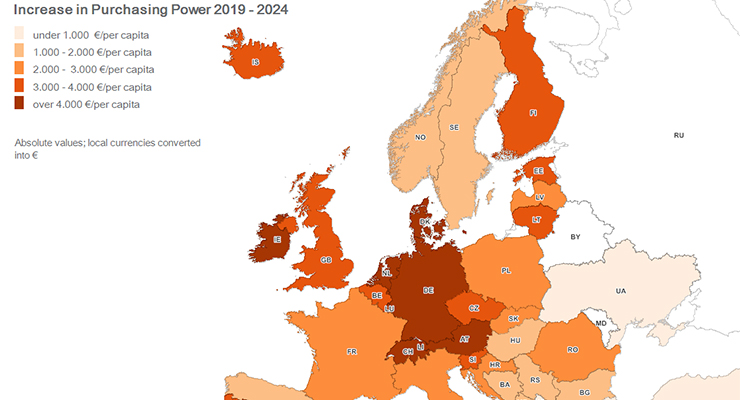The Swiss achieved by far the highest increases in purchasing power (nominal, converted into €) during this period: with just under 13,000 euros per inhabitant per year, their figure is twice as high as that of the second-ranked country, Luxembourg, with 6,200 euros. The Netherlands (+4,800 euros) and Ireland (+4,500 euros) follow in the next positions. Austria secured fifth place in the European ranking with an absolute increase of 4,400 euros, just ahead of Germany. Finally, Denmark, the United Kingdom, the Czech Republic, and Belgium complete the top 10 with increases ranging from 3,500 euros to 4,000 euros.
For understandable reasons, Ukraine recorded practically no growth. Also at the lower end of the ranking, with hardly any measurable change, is Turkey, where high inflation has led to a significant real loss in purchasing power. Albania and Kosovo are also at the bottom of the ranking.

Unexpectedly high increases (around 3,000 euros) were achieved by Finland and the Baltic states over the past five years. In contrast, Norway, Sweden, and Spain disappointed with increases below 2,000 euros.
Overall, this long-term analysis shows that the wealthy Western European countries also recorded the largest increases during the observation period. However, when comparing the increases relative to the total available purchasing power, most Balkan countries (ex-Yugoslavia, Romania, Bulgaria) performed the best, followed by the Czech Republic and Poland.
Based on currently available data, Germany, Italy, and France are expected to see only modest increases in the coming years. In contrast, particularly dynamic developments are anticipated in Malta, Ireland, Poland, Hungary, and Romania.






